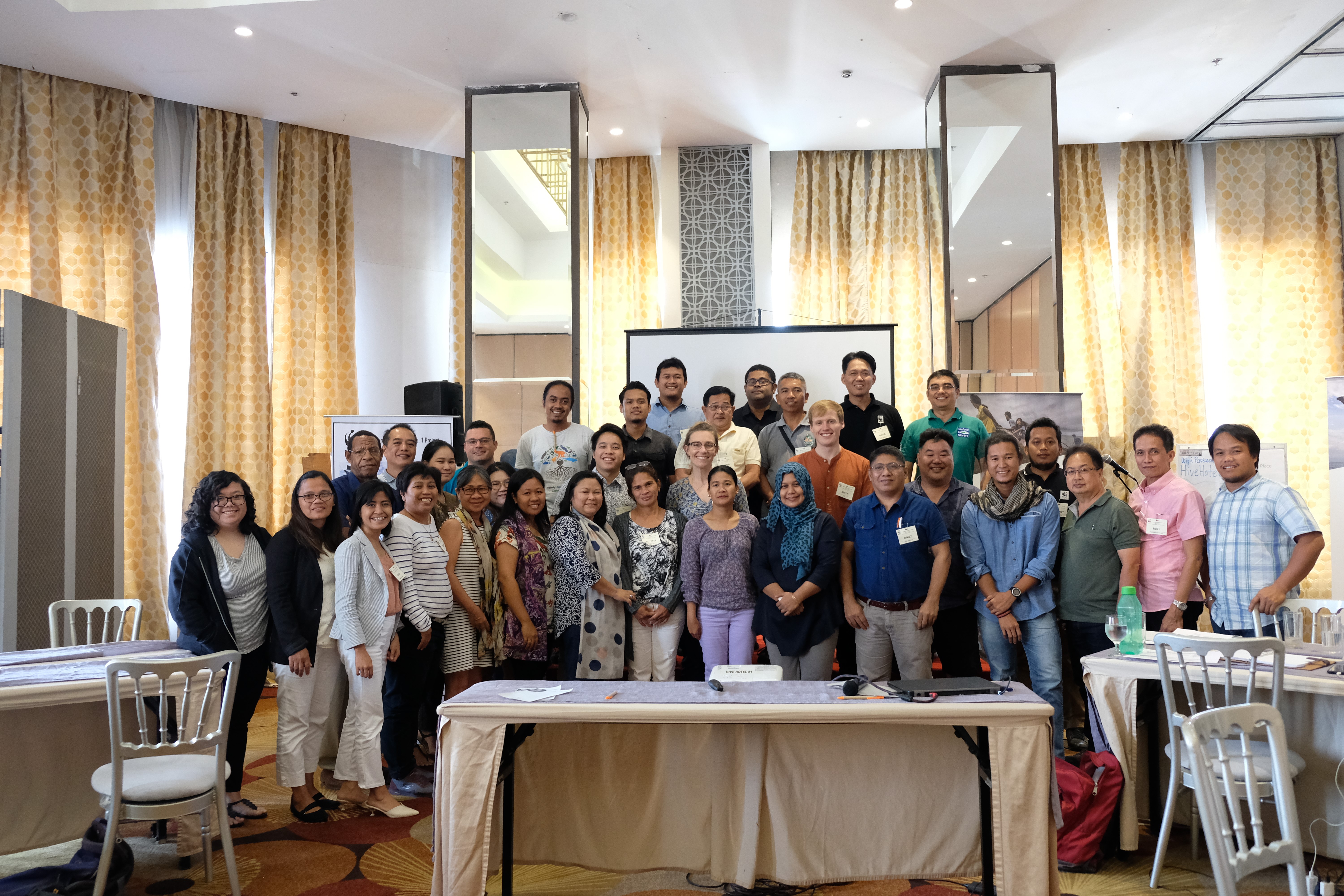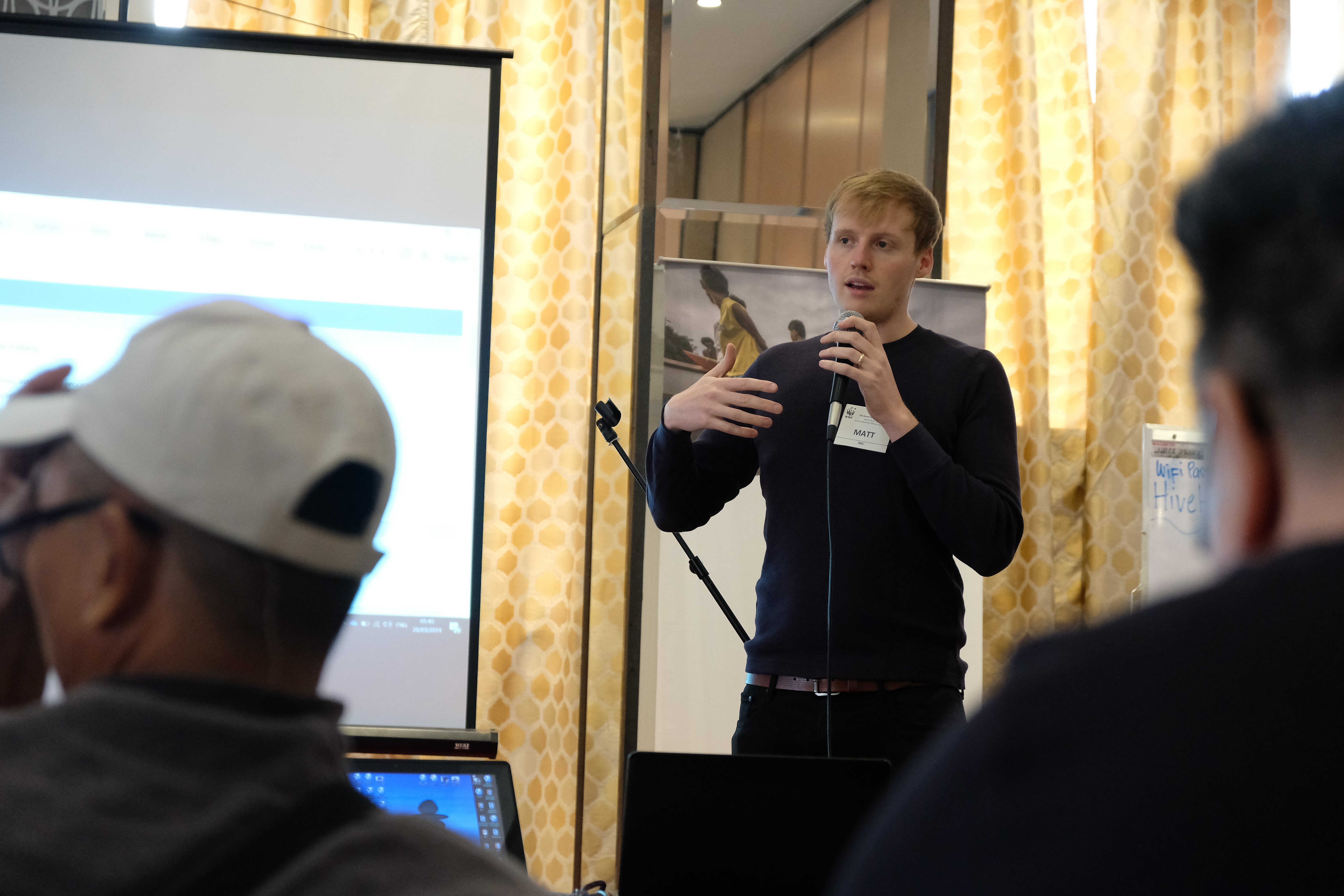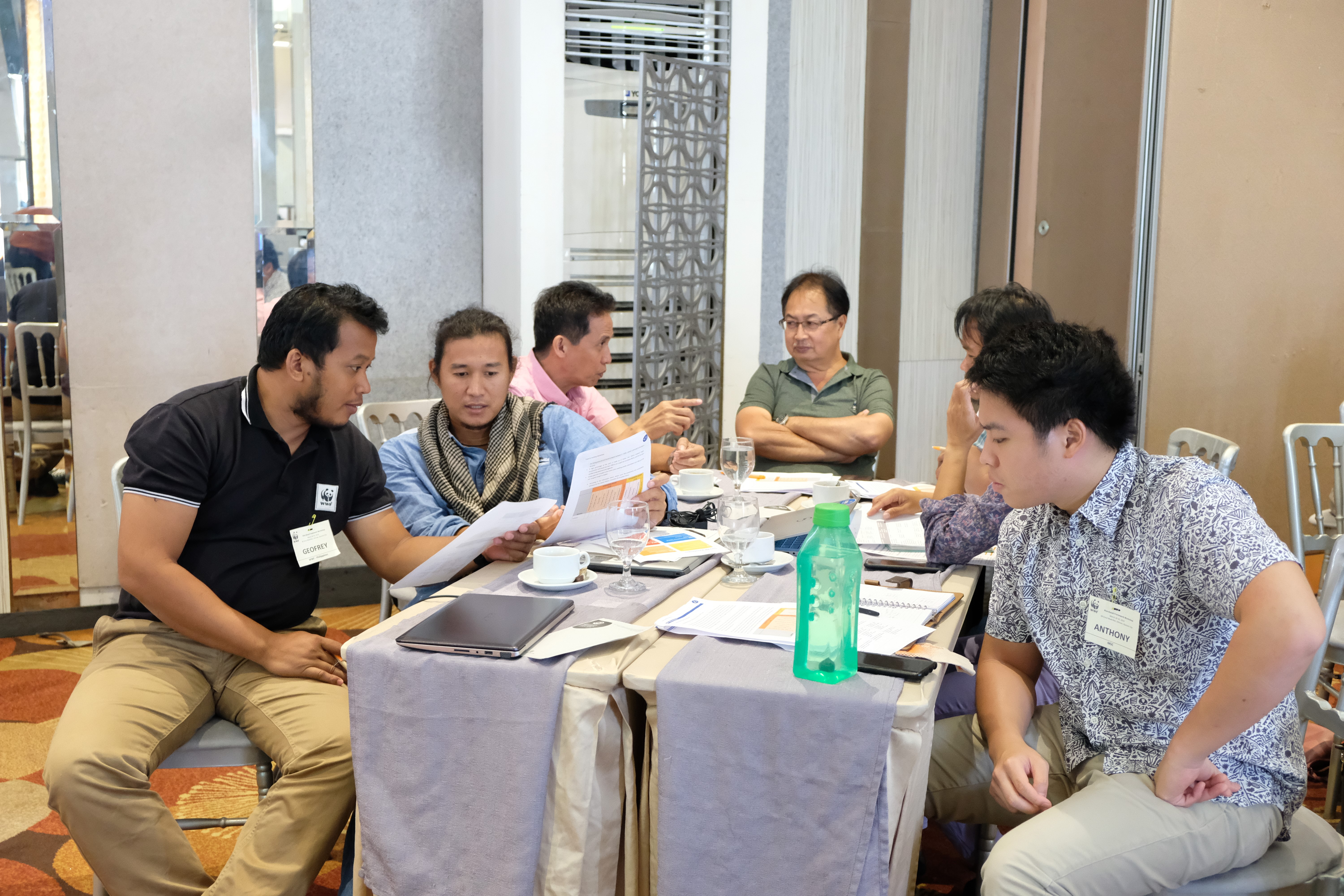WWF-Philippines, Marine Stewardship Council Hold Workshop on the Risk-Based Framework with Local Stakeholders
April 2019

Attendees of the Risk-Based Framework (RBF) Workshop for fisheries improvement projects held at the Hive Hotel pose for a photograph. Photograph © WWF-Philippines
On March 28-30, 2019, the World Wide Fund for Nature (WWF) Philippines held a Risk-Based Framework (RBF) Workshop at the Hive Hotel in Quezon City for the projects working with fisheries improvement and marine protected areas. The workshop was led by Kate Dewar and Matt Gummery of the Marine Stewardship Council (MSC), and attended by over 30 participants from across the region.
The MSC, which is denoted by a blue ecolabel on fishery products, is the world’s leading standard for sustainable fisheries. Certification is a multi-year process that requires the fishery to be greenlighted by the council with regards to the sustainability of stocks, impacts on ecosystems, and the effectiveness of fishery management. The length of the certification process, coupled with its cost and its emphasis on empirical data otherwise unavailable in small-scale artisanal fisheries in developing countries, makes it difficult to attain for many fisheries in the Philippines.

Matt Gummery, Fisheries Assistant Manager for the Marine Stewardship Council, presents the RBF framework to workshop attendees. Photograph © WWF-Philippines
The RBF is used in fisheries lacking in data, making use of a scoring guide and stakeholder consultations to gather information. Where data is insufficient, fisheries are recommended to assume high risk, which means fishery activity has a negative impact on stocks, habitats, and ecosystems. The RBF framework can be used as a preliminary assessment of this risk, which is useful in creating informed fishery management policies.
The stakeholder consultation process employed in fisheries in the Philippines is robust, making the RBF model effective in the country.
The workshop was conducted through a series of lectures, discussions, and exercises in order to familiarize the participants with using the RBF methods using real-life data and examples. WWF-Philippines staff shared their experiences and learnings using the RBF methods in their respective project sites, with focus given to Lagonoy Gulf and Mindoro Strait.

Workshop attendees pore through data gathered through the RBF framework. Photograph © WWF-Philippines
Practical concerns over the feasibility of the RBF were raised during the workshop process as well. “I learned a lot from the training, but the question is how do I share this with my fellow fisherfolk?” said Bernard Mayo, secretary of the Occidental Mindoro Federation of Tuna Fishers Association. Despite the potential for expanded markets and increased incomes, issues on the actual attainment and execution of the MSC certification in local fisheries left some of the participants with apprehensions. “[The Risk-based Framework] will require time, effort, and above all, monetary cost,” continued Mayo.
To address existing doubts over the framework, follow-up workshops on the RBF and its feasibility in local fisheries will be conducted. These workshops will showcase data and anecdotal references from Philippine fisheries already making use of the framework, as proof that the RBF can work given local contexts.
Further trainings on catch documentation and traceability are in the works, while the Fish Forward 2 project continues to educate fisherfolk and stakeholders on the importance of sustainable seafood. WWF-Philippines is working to promote the RBF framework, settling the existing hesitations of stakeholders. As these workshops continue, hope remains high for the sustainable futures of local fisheries and fishing communities.
For more information, please contact:
Communications & Media Manager Mr. Dan Ramirez (dramirez@wwf.org.ph)
